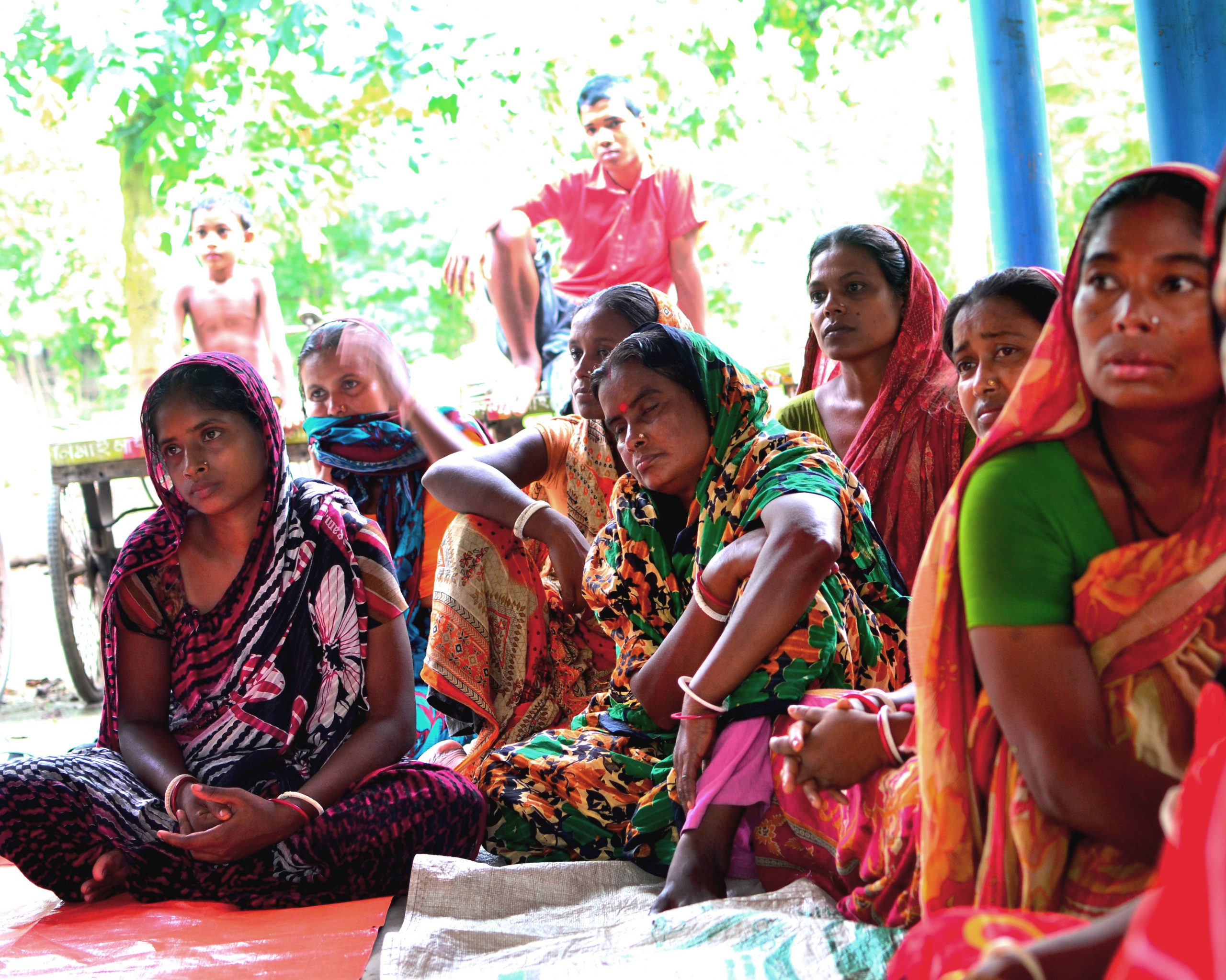What are the key ethics issues in health systems research?
Health systems research is a field that draws on different disciplinary traditions and methodological approaches. Its overall aim is to influence policy and wider action to improve health system performance.
Health policy and systems research focuses on:
- The performance of health systems and their sub components (resources, organisations, and services)
- How links between the sub components shape performance, and what forces influence those links
- How to strengthen health system performance over time
Existing guidelines and research ethics committee members’ training tends to focus predominantly on the ethics of biomedical research. This is challenging for health systems research, which often operates at system or population as opposed to individual level. Also, in some health systems research (for example some embedded or participatory research) the distinction between research and practice that is central to much biomedical research ethics guidance is deliberately blurred.
There are very few guidelines and papers which deal directly with the ethics of health systems research. We have gathered together the ones that do in the Useful Resources section below. Many of these papers were led by Bridget Pratt and Adnan Hyder who have put considerable effort into synthesising existing literature and adding analysis based on their work within health systems consortia, for example, Future Health Systems.
The resources begin with a 2019 paper from the Alliance for Health Policy and Systems Research. It outlines a series of “points to consider” for the identification, consideration and communication of ethical issues.
This is followed by a recording of a webinar organised by the Health Systems Global Thematic Working Group on the Ethics of Health Systems Research. The Group is a great community of practice for those who want to share and learn on the topic. The webinar tackles issues such as how we conceptualise ethics in relation to non-human subjects (such as hospitals or communities), consent, and ensuring that risks are minimised and benefits maximised.
We have included a blog by Molyneux et al (2017) because it gives a quick round-up of what ethical issues were discussed at the Fourth Global Symposium on Health Systems Research raising issues such as social justice, micro-level ethics questions, and obligations and responsibilities in the face of multiple needs and inequities.
Having provided this overview, a series of papers provides more detailed insights. Krubiner and Hyder (2014) provide overarching domains in which we could consider health systems ethics: holism, sustainability, evidence and effectiveness, efficiency, public engagement and transparency, accountability and feedback, equity and empowerment, justice and fairness, responsiveness, collaboration, and quality.
Pratt et al. (2016) call upon the field of bioethics to move their focus beyond clinical trials to look at issues such as operations research, implementation research, health systems research, and research on the social determinants of health. The paper by Wassenaar and Rattani (2016) applies the Emanuel Framework for Clinical Research to health systems research to see how this might further Hyder’s call for more contemplation of ethics. The paper by Luyckx et al. (2017) draws on an expert meeting and calls for greater understanding and exploration of these issues within Ethics Review Boards.
Pratt et al. (2017) lead us through a scoping review of the literature related to health systems research, a conceptual exploration of the issue, how systems thinking might be applied to the topic, a review of field experiences and a call to action.
Useful resources

The ethics of global health communication in the artificial intelligence era: avoiding poverty porn 2.0
Following widespread criticism, so-called poverty porn, which usually appears in the guise of photographs featuring people in extreme states of suffering, is now largely discouraged in contemporary ethical communications guidelines, because it reduces people to decontextualised, suffering, and racialised bodies. Does this reduction mean that such biased imagery is a thing of the past? Alarmingly, this […]

Why should we be concerned by internalised racism in global health?
Internalised racism constitutes an adoption of beliefs about one’s inferiority, weaknesses or shortcomings as a function of racial hierarchy affecting one’s identity and self-worth, thoughts, emotions and behaviours. Internalised racism stems from widely known and discussed institutional racial discrimination, which perpetuates epistemic injustice, social injustice and health inequities in global health. In this article, reflecting […]

Genocide in Gaza: moral and ethical failures of medical institutions
In March, 2024, Safiyyah Abbas and Lucy Mitchell highlighted the atrocities unfolding in Gaza and the failure of Australian medical institutions to mount a meaningful protest. Since then, the Israeli Government’s sustained and widespread assaults on civilians—combined with deliberate obstruction of food, water, fuel, and medical supplies—have prompted the International Criminal Court to issue arrest […]

The virtues of limits and environmental sustainability in healthcare
Abstract The spectre of human-induced climate change has drawn attention to the need to discover new, environmentally sustainable approaches to healthcare. This article draws upon David McPherson’s The Virtues of Limits (2021) to develop a virtue ethics for sustainability in healthcare. I explore how a virtuous appreciation of the value of healthcare resources can lead us to […]

In hospital resource allocation conflicts between health goods and environmental goods, a relational, co-benefits frame, rather than a dualistic, competing goods frame, is key
ABSTRACT Health systems contribute to the environmental crisis. Yet, addressing this problem seems to generate a resource allocation dilemma for hospitals: investing in healthcare delivery seems to mean sacrificing environmental goods, and vice versa. We question this zero-sum thinking. After presenting the benefits of investing in the two seemingly competing goods—environmental goods and health goods—we […]

Thinking like a mountain: A land ethical approach to healthcare resource allocation
Abstract Human activity is now having a defining influence on global systems. The Anthropocene epoch requires revisiting our ethical presuppositions to understand our relationship to the earth’s life support systems. The Land Ethic of Aldo Leopold proposes an ethic that is diachronic, holistic, and biocentric, in contrast to the synchronic, individualist, and anthropocentric axioms of […]

Sufficiency and healthcare emissions
Abstract In this paper, I am concerned with how healthcare systems ought to transition away from the greenhouse gas emissions that they have historically relied on to provide care. I address two questions in relation to this issue. The first is what emissions target should healthcare systems adopt? Second, is how should the burdens of […]

Environmental sustainability and the limits of healthcare resource allocation
Recent literature has drawn attention to the complex relationship between health care and the environmental crisis. Healthcare systems are significant contributors to climate change and environmental degradation, and the environmental crisis is making our health worse and thus putting more pressure on healthcare systems; our health and the environment are intricately linked. In light of […]

Healthcare Resource Allocation and Environmental Sustainability
Our healthcare systems are responsible for delivering essential, often life-saving care to patients within the society that they serve. It has long been recognised that healthcare systems, as basic social institutions, have duties of health and social justice.1 Healthcare systems should help ensure people are free of preventable morbidity and mortality2 and able to function normally3 such that […]

Time to expand a paradigm: Healthcare sustainability and eco-ethical assessment
This paper aims to rethink healthcare sustainability from an eco-ethical approach, mainly referring to van Rensselaer Potter’s global bioethics and Arne Naess’s ecosophy. In this sense, it seeks to address the ethical problem of allocating resources from a non-individualist and essentially bio-medical perspective, which interprets health (or disease) as a mere feature of the individual. […]

Unfair knowledge practices in global health: a realist synthesis
Abstract Unfair knowledge practices easily beset our efforts to achieve health equity within and between countries. Enacted by people from a distance and from a position of power (‘the centre’) on behalf of and alongside people with less power (‘the periphery’), these unfair practices have generated a complex literature of complaints across various axes of […]

Using antioppressive teaching principles to transform a graduate global health course at Johns Hopkins University
Abstract Education systems and pedagogical practices in global public health are facing substantive calls for change during the current and ongoing ‘decolonising global health’ movement. Incorporating antioppressive principles into learning communities is one promising approach to decolonising global health education. We sought to transform a four-credit graduate-level global health course at the Johns Hopkins Bloomberg […]

Non-White scientists appear on fewer editorial boards, spend more time under review, and receive fewer citations
Significance Empirical evidence suggests that non-White scientists experience various forms of inequality, creating barriers to their entry and participation in academic research. We contribute to this literature by examining disparities in i) editorial board representation, ii) time spent under review, and iii) citation rates. Using a dataset of 1,000,000 papers from six publishers over the […]

Disrespect in health care: An epistemic injustice
In this issue of the Journal of Health Services Research & Policy, Entwistle and colleagues address an urgent concern in our health care systems, namely that patients are sometimes treated with disrespect and that this disrespect is not sufficiently considered or addressed. They outline a number of important reasons for this deficit, including that respect is […]

The ethics of research into health and climate change: call for papers
Climate change is the greatest health threat facing humanity. The nature and scale of the interconnected impacts of climate change on health as well as the effectiveness of interventions to adapt to and mitigate climate change are currently the focus of research. Questions about which research should be given priority are critical, and ethical considerations […]

Three pathways to better recognize the expertise of Global South researchers
It is widely perceived how research institutes have been adopting the discourse of champions of diversity, inclusion, and equity (DEI) in recent years. Despite progress in diversity and inclusion in the academic environment, we highlight here that nothing or, at very best, little work has been done to overcome the scientific labor division in academic […]

Ethical perspectives on health systems and climate change
A summary of the Thematic Working Group webinar by Kate Hawkins of Pamoja Communications, ReBUILD for Resilience and Urban SHADE. Our session moderators, Sassy Molyneux and Karen Ceballos, opened the webinar by explaining that the time is right for this conversation as there are new ethical issues and concerns around equity and responsibility and tensions […]

The “light” emerging from a “lightning session” at the 2024 Oxford Global Health and Bioethics International Conference
By Davide Bilardi and Nadia Tagoe The 2024 Oxford Global Health and Bioethics International Conference organisers dedicated a “lightning session” on ‘Towards a more Equitable Global Health’. Presenting at this session gave us a chance to reflect on some of our work linked to decolonisation and global health research. Some light indeed emerged for us […]

ChatGPT and global public health: Applications, challenges, ethical considerations and mitigation strategies
Abstract The advancement of deep learning and artificial intelligence has resulted in the development of state-of-the-art language models, such as ChatGPT. This technology can analyze large amounts of data, identify patterns, and assist in the analysis and understanding of risk factors for diseases. Despite its potential, the applications, challenges, and ethical considerations have not been […]

Culturally responsive research ethics: How the socio-ethical norms of Arr-nar/Kreng-jai inform research participation at the Thai-Myanmar border
Abstract Despite advances, international research ethics guidelines still tend to consist of high-level ethical principles reflecting residual influence from North American and European traditions of ethics. Local ethics committees and community advisory boards can offer more culturally-sensitive approaches to training but most institutions lack substantive practical ethics guidance to engage rich moral understandings in day-to-day […]

The Cape Town Statement on fairness, equity and diversity in research
The benefits of scientific collaboration are too often skewed towards wealthier countries. Bioethicists and others present guidance on how stakeholders such as researchers can change this. As awareness has grown about fraud and misconduct in science, the World Conferences on Research Integrity have become a leading forum for the discussion and study of ways to […]

Offline: The silencing of the South
League tables are addictive. From football to motorsport, tennis to golf, we relish following who is up and who is down. Understandably so, given that sport is fiercely competitive between individuals and teams. But universities? Provosts and Presidents of our greatest higher education institutions obsess over their rankings. Three dominate—the Times Higher Education (THE) World […]

Four approaches to supporting equitable research partnerships
Four approaches to supporting equitable research partnerships Transforming the global research partnership ecosystem in ways that increase equity and restore balance requires consistent action and reflection; the crux is finding a balance between flexibility and equity that enhances trust and respect among all partners. Drawing on the experience of funders, research organisations and researchers in […]

‘The Lancet’ journal rejects papers that don’t acknowledge African researchers
Respected global medical journal The Lancet will continue to reject papers with data from Africa that fail to acknowledge African collaborators, in the interest of building African research and of promoting integrity, equity and fairness in research collaboration, according to senior executive editor Sabine Kleinert. The journal made the decision after coming across manuscripts submitted by researchers […]

On an ethic of not going there
Fieldwork – “going there” – is the presumed norm and baseline of geographical research. In this commentary, I propose a framework for challenging the normative framing of fieldwork in geography and other fields (including those beyond academia): an ethic of not going there. I argue that fieldwork, rather than a neutral rite of passage, is deeply entwined […]

What counts? Knowledge and ideology in global health research
This piece was published on the Collective

Nature addresses helicopter research and ethics dumping
New framework aims to improve inclusion and ethics in global research collaborations amid wider efforts to end exploitative practices. Exploitative research practices, sadly, come in all shapes and sizes. ‘Helicopter research’ occurs when researchers from high-income settings, or who are otherwise privileged, conduct studies in lower-income settings or with groups who are historically marginalized, with […]

The rise of citational justice: how scholars are making references fairer
An emerging movement aims to push researchers to pay more heed to inequities in scholarly citations. Christen Smith was at a conference in October 2017 when she felt a familiar jolt of frustration. A presenter showed a slide with passages that had been paraphrased from one of her books — and, to her dismay, had […]

Africa is not a museum: the ethics of encouraging new parenting practices in rural communities in low-income and middle-income countries
The Nurturing Care Framework for Early Childhood Development urges stakeholders to implement strategies that help children worldwide achieve their developmental potential. Related programmes range from the WHO’s and UNICEF’s Care for Child Development intervention, implemented in 19 countries, to locally developed programmes, such as non-governmental organisation Tostan’s Reinforcement of Parental Practices in Senegal. However, some […]

Thinking outside the modern capitalist logic: health-care systems based in other world views
Latin America is home to about 800 different Indigenous Peoples and Nationalities, the equivalent to 9·8% of its population. The average infant mortality rate in Indigenous children is 60% higher than that in non-Indigenous children. In 2018, Ecuador reported that 50·6% of its Indigenous population lived in poverty, compared with 20·9% of the non-Indigenous population. Between […]

Ethical dimensions of community engagement and involvement in global health research
The NIHR global health research portfolio held a webinar for applicants about ethical dimensions of community engagement and involvement in global health research, in partnership with the Institute of Development Studies. The the speakers for this session are: Dr Bridget Pratt, Senior Research Fellow in the School of Population and Global Health at the University of […]

Model for developing context-sensitive responses to vulnerability in research: managing ethical dilemmas faced by frontline research staff in Kenya
Health research in low-resource settings often involves individuals and populations defined as ‘vulnerable’. There is growing attention in the literature to the ethical dilemmas that frontline research staff face while conducting such research. However, there is little documented as to how research staff might support one another in identifying and handling these dilemmas in different […]
Research for Health Justice: an ethical framework linking global health research to health equity
Global health research should generate new knowledge to improve the health and well-being of those considered disadvantaged and marginalised. This goal motivates much of the global health research being undertaken today. Yet simply funding and conducting global health research will not necessarily generate the knowledge needed to help reduce health disparities between and within countries. […]
A systematic review on ethical challenges of ‘field’ research in low-income and middle-income countries: respect, justice and beneficence for research staff?
Primary data collection in low-income and middle-income countries (LMICs) is associated with a range of ethical complexities. Considerations on how to adequately ensure the well-being of research staff are largely neglected in contemporary ethics discourse. This systematic review aims to identify the ethical challenges that research staff across different hierarchical levels and scientific disciplines face […]
Sharing power in global health research: an ethical toolkit for designing priority-setting processes that meaningfully include communities
To promote social justice and equity, global health research should meaningfully engage communities throughout projects: from setting agendas onwards. But communities, especially those that are considered disadvantaged or marginalised, rarely have a say in the priorities of the research projects that aim to help them. So far, there remains limited ethical guidance and resources on how […]
Justice: a key consideration in health policy and systems research ethics
Health policy and systems research (HPSR) is increasingly being funded and conducted worldwide. There are currently no specific guidelines or criteria for the ethical review and conduct of HPSR. Academic debates on HPSR ethics in the scholarly literature can inform the development of guidelines. Yet there is a deficiency of academic bioethics work relating to justice in […]
Ethical considerations for health policy and systems research
To promote social justice and equity, global health research should meaningfully engage communities throughout projects: from setting agendas onwards. But communities, especially those that are considered disadvantaged or marginalised, rarely have a say in the priorities of the research projects that aim to help them. So far, there remains limited ethical guidance and resources on how […]
Webinar: The ethics of health systems research
In this film members of the Thematic Working Group in Health Systems Research reflect on some of the potentially distinct and unique challenges that are faced by health systems researchers. For example: There are a variety of methods and measures in health systems research – it is a diverse field. These research ‘interventions’ need to be […]
Ethics in health systems research is ‘everybody’s business’
Blog: Molyneux S. et al (2017) Ethics in health systems research is ‘everybody’s business’, Health Systems Global This blog provides a summary of some of the discussions related to ethics at the Fourth Global Symposium on Health Systems Research which was held in 2016 in Vancouver. It explores: the links between health systems research and […]
A bioethical framework for health systems activity: a conceptual exploration applying ‘systems thinking’
Krubiner CB and Hyder A. (2014) A bioethical framework for health systems activity: a conceptual exploration applying ‘systems thinking’, Health Systems, June 2014, Volume 3, Issue 2, pp 124–135 Recognizing that the health system is a complex and dynamic network of actors and activities, this paper seeks to push the field of bioethics to develop a more holistic approach from the […]
If Research Is a Pillar of Health System Development, Why Only Focus on Clinical Trials?
Pratt B., Ali J. and Hyder A.A. (2016) If Research Is a Pillar of Health System Development, Why Only Focus on Clinical Trials? The American Journal of Bioethics Vol. 16, Iss. 6, 2016 The authors note that a small amount of bioethics literature supports linking health research to health system development as a matter of justice. They suggest […]
What Makes Health Systems Research in Developing Countries Ethical? Application of the Emanuel Framework for Clinical Research to Health Systems Research
Wassenaar D. and Rattani A. (2016) What Makes Health Systems Research in Developing Countries Ethical? Application of the Emanuel Framework for Clinical Research to Health Systems Research, Developing World Bioethics, Volume 16, Issue 3December 2016, Pages 133–13 The growing importance of health systems research has opened debate about appropriate ethical frameworks and guidelines for the ethical […]
Health policy and systems research: towards a better understanding and review of ethical issues
Luyckx V.A., Biller-Andorno N., Saxena A. and Tran N.T (2017) Health policy and systems research: towards a better understanding and review of ethical issues, BMJ Glob Health 2017;2:e000314 Given the focus on health systems in the post-millennium development goal era and moving towards the sustainable development goals, there is a compelling need for a common framework for health […]
Ethics of health policy and systems research: a scoping review of the literature
Pratt B., Paul A., Hyder A.A. and Ali J. (2017) Ethics of health policy and systems research: a scoping review of the literature, Health Policy and Planning, 2017, 1–21 Health policy and systems research (HPSR) is increasingly funded and undertaken as part of health system strengthening efforts worldwide. HPSR ethics is also a relatively new and […]
Ethical challenges in designing and implementing health systems research: Experiences from the field
Hyder A.A. and Krubiner C. (2016) Ethical challenges in designing and implementing health systems research: Experiences from the field, AJOB Empirical Bioethics Vol. 7 , Iss. 3 Health systems research seeks to generate knowledge to improve the mechanisms for delivering quality health services and improving population health outcomes. It covers a wide range of research questions, including health […]
Research Stakeholders’ Views on Benefits and Challenges for Public Health Research Data Sharing in Kenya: The Importance of Trust and Social Relations
There is increasing recognition of the importance of sharing research data within the international scientific community, but also of the ethical and social challenges this presents, particularly in the context of structural inequities and varied capacity in international research. Public involvement is essential to building locally responsive research policies, including on data sharing, but little […]
Ethical review of health systems research in low and middle income countries: a conceptual exploration
Hyder, A.A. et al. (2014) Ethical review of health systems research in low and middle income countries: a conceptual exploration American Journal of Bioethics. 14(2): 28-37 Hyder and colleagues provide a framework to begin to think about ethics in health systems research. They prompt us to consider eight different areas: (1) the nature of intervention; (2) types of […]
The ethics of health systems research in low- and middle-income countries: A call to action
Hyder, A.A. et al. (2014) The ethics of health systems research in low- and middle-income countries: A call to action. Global Public Health. 9(9): 1008-1022 This article draws on learning from a two-day workshop on the ethics of health systems research in low- and middle-income countries. The article explores emerging ethical issues such as units of […]
Conducting health-related social science research in low income settings: ethical dilemmas faced in Kenya and South Africa
Molyneux C, Goudge J, Russell S, Chuma J, Gumede T and Gilson L (2009) Conducting health-related social science research in low income settings: ethical dilemmas faced in Kenya and South Africa, Journal of International Development Volume 21, Issue 2 The value of the social sciences is increasingly recognised in health services and clinical research, contributing to […]

